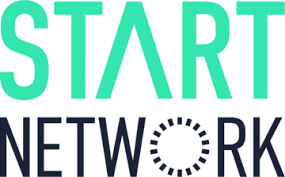
| Posted date | 10th May, 2024 | Last date to apply | 9th June, 2024 |
| Category | Consultancy | ||
| Status | Closed | ||


Terms of Reference (ToRs)
Consultancy for Pakistan National Disaster Risk Finance - Financial Flows and Gaps Analysis
Background
Concern worldwide, Pakistan is an international humanitarian organization focusing on the eradication of extreme poverty. We respond to emergencies and work to address the underlying causes of extreme poverty through long-term development programming; delivery of humanitarian aid; capacity building of partners; and strengthening of disaster risk reduction and community resilience programming.
Concern Worldwide Pakistan is hosting the Disaster Risk Financing and FOREWARN Programme for Start Network as part of the READY Pakistan Hub. The READY Pakistan Hub, aims to create a proactive, resilient, people-centered, locally led, and innovative humanitarian ecosystem. It plans to address emerging challenges through strengthened preparedness and response to any predictable crises.
Purpose of the Assignment
The task requires a consultant to undertake secondary data collection and analysis to identify at a national level, in previous emergencies, and pre-positioned prior to future crises, what types and levels of financing are available from different sources. This Financial Flow will be a summary and mapping exercise of the flow of Disaster Risk Management (DRM) and Disaster Risk Reduction (DRR) funding and analyses the source and flow of funds that the humanitarian and development sectors have access to at different stages in the Disaster Risk Management cycle in Pakistan.
Specific Objectives of the Assignment
- Identify and assess potential financial risks associated with natural disasters and other catastrophic events.
- Understand the existing financial flows related to disaster risk management, including public expenditures, insurance coverage, donor funding, and other sources of financing.
- Determine the disparities between the financial resources available and the financial requirements for effective disaster risk management.
- Evaluate the effectiveness and efficiency of existing financial instruments used for disaster risk financing, such as insurance, contingent financing, reserve funds, and other risk transfer mechanisms.
- Develop strategies to optimize the allocation and utilization of financial resources for disaster risk management.
- Enhance financial preparedness and response capabilities by ensuring adequate funding is available before, during, and after disasters strike.
- Promote financial resilience at the individual, community, institutional, and national levels by fostering a culture of risk-awareness, savings, insurance uptake, and sustainable financial practices.
- Provide evidence-based policy recommendations to policymakers, governments, and relevant stakeholders to strengthen financial resilience and improve disaster risk financing strategies.
- Build capacity among stakeholders, including government agencies, financial institutions, NGOs, and communities, to better understand and manage financial risks associated with disasters.
- Establish mechanisms for monitoring and evaluating the effectiveness of financial flows and gaps analysis in disaster risk financing over time.
Scope of Work
- Analyses of existing and planned initiatives from governments, humanitarian and development organizations that address different aspects and risk layers of disaster risk finance
- Secondary data collection and analysis from Global international humanitarian financial flows Financial Tracking System (FTS)
- Investigate local funding mechanisms including on budget and off budget emergency funds and social protection and safety net systems
- Identify any existing DRF systems from the world bank, regional development banks, Red Cross, governments and IMF
- Any local information on remittance levels and their role in crisis - Local lending and credit organization at time of crisis
- Analysis of financial coverage through the following lenses: Per hazard, per severity of hazard (mild, moderate and severe) and per national geography (district level)
Analysis per sector across the DRM cycle: DRR and Preparedness, Anticipatory Action, Response, Recovery
- Complete a gap analysis to identify how existing funding channels could be enhanced and identify new DRF systems which could plug priority gaps
- Explore how system triggers are designed and detail the risk and vulnerability data the systems use
- Mapping of financial flows and humanitarian assistance to local communities, including remittances and other assistances at times of crisis
- Mapping of financial flows to local Country Start Members along with gaps and flow barriers
Deliverables
- Initial outline of proposed methodology to address the key questions
- Written report of no more than 10 pages per component
- Initial presentation to be presented
- Presentation of results to the Concern Worldwide, START Network and Ready Pakistan
- Back-end folder of the data used in the analysis
Experience and Qualifications
Experience:
- At least ten (10) years of experience and proven competency in conducting analysis and provide strategic guidance in the field of economy and/or public investment planning, and macro-economic analysis
- Minimum of eight (8) years of professional experience of working in Asia and the Pacific region
- Proven experience with economic analysis, public finance and investments in disaster risk reduction will be an asset
- Strong analytical skills and solid understanding of global resilience frameworks, disaster risk reduction and resilience strategies including policies and frameworks
- Team work with strong communication skills and capacity to work under pressure and short deadlines
- Cross cultural awareness and ability to work amongst a diverse group of staff and partners
- Excellent English proficiency in oral and written communication, including a demonstrated track record in technical report writing and ability to communicate technical matters effectively to general audience
Education:
- A master’s degree in finance, economic governance and development, public policy, and other relevant fields.
- Prior experience in developing research papers (published) and/or scoping study on DRR/ DRM
- Previous experience working with National Disaster Management Organizations like the NDMA , federal and provincial P&Ds , finance department and PMD in the context of budgeting and other financial management exercises
Lines of Communication
Crisis Anticipation and Risk Financing Advisor will be the primary contact
Contract Duration
The total duration of the assignment is 8 weeks from July 2024 to August 2024.
Selection Process and Criteria
The EOI will be evaluated through a competitive selection process. The following overarching criteria will be followed:
- Consultant (s) previous similar experience;
- Staff skills, credentials, and knowledge as reflected in the EOI and CVs;
- Justification and suitability as reflected in the EOI;
- Relevancy of the proposed course outline and training methodology
- Quality and relevancy of previous work
Concern will review the EOI/CVs/previous experiences, and only shortlisted consultants will be called for a presentation/meeting (where required) to clarify the requirements and Scope of Work. After the presentation/meetings, Concern will finalize the list of shortlisted consultants, and the financial proposal/ budget will only be requested from the shortlisted consultant(s). Note: It is the applicant’s responsibility to demonstrate previous experience and justification of the proposed consultancy. The panel will review the documents and evaluate capacity based on the information in the above-required documents. The panel will only review/evaluate the documents that are stated above. Additional documents will not be considered during review/evaluation.
Note:
- Please make sure that you have submit self-declaration (attachment available) of previous criminal conviction along with technical EOI as part of the application process.
- The selected company or individual consultant has to accommodate the changes incurred in the ToR in terms of scope and scale of activities.
Safeguarding at Concern: Code of Conduct and its Associated Policies
Concern has an organisational Code of Conduct (CCoC) with three Associated Policies; the Programme Participant Protection Policy (P4), the Child Safeguarding Policy and the Anti-Trafficking in Persons Policy. These have been developed to ensure the maximum protection of programme participants from exploitation, and to clarify the responsibilities of Concern staff, consultants, visitors to the programme and partner organisation, and the standards of behaviour expected of them. In this context, staff have a responsibility to the organisation to strive for, and maintain, the highest standards in the day-to-day conduct in their workplace in accordance with Concern's core values and mission. Any candidate offered a consultancy opportunity with Concern Worldwide will be expected to sign the Concern Code of Conduct and Associated Policies as an appendix to their consultancy contract. By signing the Concern Code of Conduct, candidates acknowledge that they have understood the content of both the Concern Code of Conduct and the Associated Policies and agree to conduct themselves in accordance with the provisions of these policies. Additionally, Concern is committed to the safeguarding and protection of vulnerable adults and children in our work. We will do everything possible to ensure that only those who are suitable to do consultancy work or volunteer with vulnerable adults and children are recruited by us for such roles. Subsequently, being hired as a consultant with Concern is subject to a range of vetting checks, including criminal background checking.
The advertisement of these ToRs and submission of application/EOIs against the advertisement does not constitute any commitment from Concern. Concern reserves the right to cancel or amend the process at any time without assigning any reason
Apply By:
Applications Submission Process
Interested consultants should send the following documents in a sealed envelope, clearly marked “Consultancy for Financial Flow and gap Analysis” and it should reach the HR department, Concern Worldwide head office at Plot # 144, Street # 30, G9/1 Islamabad, Pakistan, before 16:00 Hrs June 09, 2024. The following documents are to be submitted:
- Expression of Interest (EOI) per the attached format/template. If the EOI is not received as per the attached template, if its format is altered/amended in any way, or if it exceeds the given page limit (as detailed in the template), Concern will not consider the application for further review.
- CV(s) of staff who will be engaged for this assignment reflecting at least the academic qualification, previous relevant experience, contact number, current location, etc. Each CV should not exceed four (4) pages in MS Word format – font size Times New Roman 11 – A4 size page – margin one inch on all sides – alignment justified;
- Documented evidence, e.g., copy of reference materials previously developed, contract award or reference letter from the clients stating the scope of services and deliverables related to previously completed similar assignments (Maximum two previous related documents/sample);
- Registration certificate of the Consultancy Firm, clearly mentioning the date of establishment;
- NTN of the Consultancy Firm.
The EOI and the required documents should be submitted through courier/post or in person and reach the specified location within the specified deadline and in the appropriate format. The cost proposal/budget is not required at this stage.
For any questions and queries, the applicant can email [email protected] by 15:00 Hrs May 31, 2024. Concern will respond to the queries within two (02) working days.
1. Background ....
TERMS OF REFERENCE (ToRs) ....